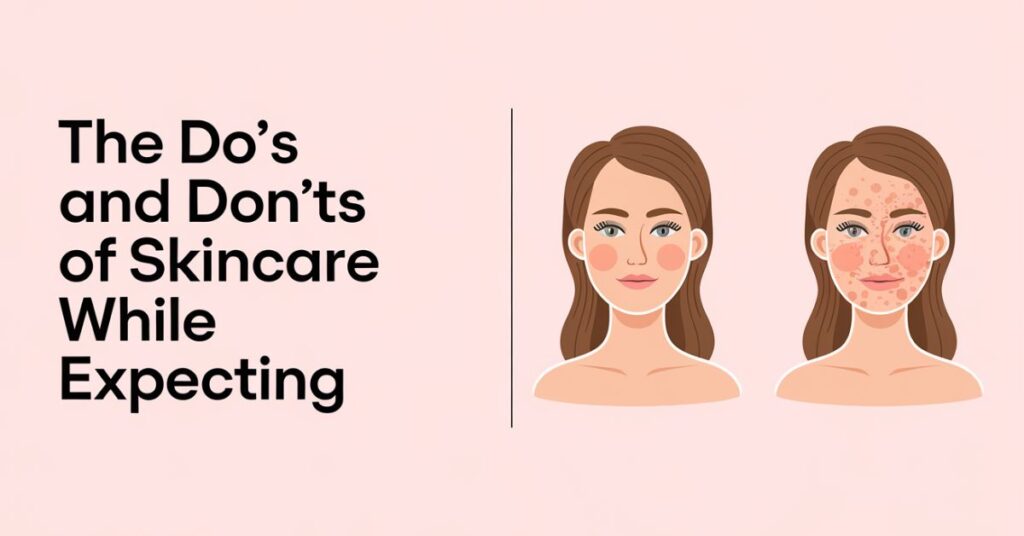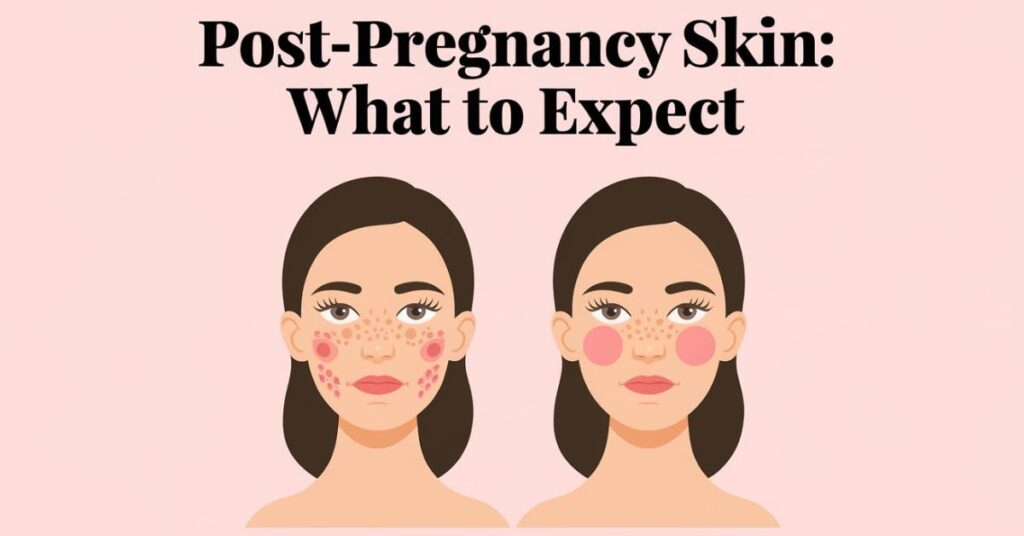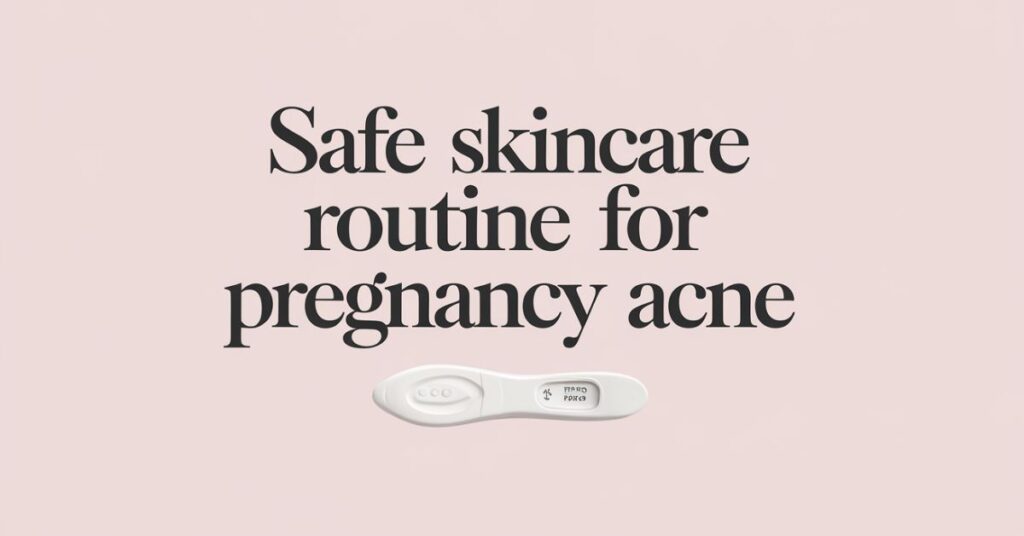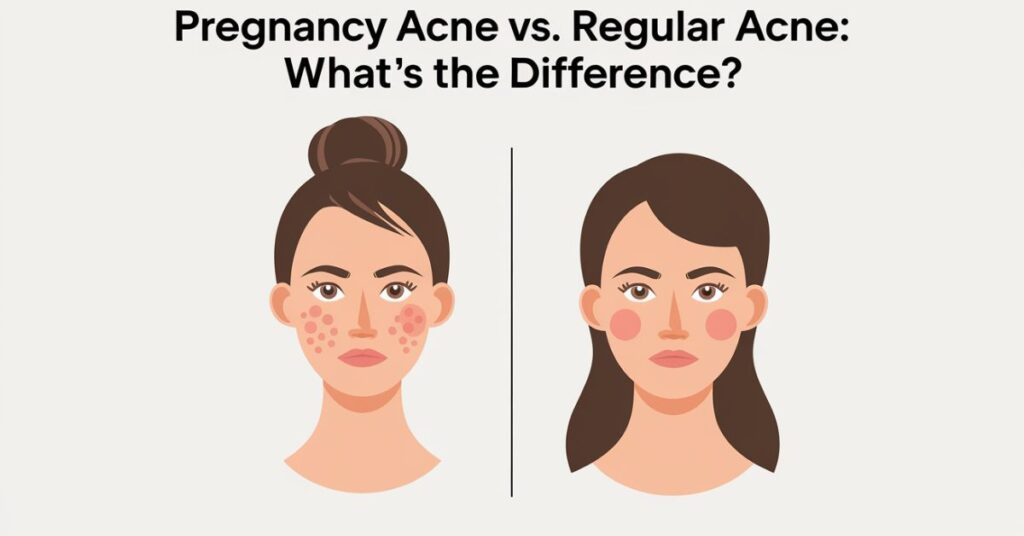Pregnancy brings a whirlwind of changes, and your skin’s no exception. Pregnancy acne can be a surprising twist in your journey to motherhood. Let’s dive into the world of bumps and blemishes that often accompany your baby bump.
Acne during pregnancy isn’t just a cosmetic concern. It’s a common issue that affects many expectant mothers. In this article, we’ll tackle the top three questions about pregnancy acne areas and much more.
From hormonal shifts to safe treatments, we’ve got you covered. Whether you’re dealing with a few spots or a full-blown breakout, you’ll find the answers you need right here.
The Hormonal Rollercoaster: Why Pregnancy Triggers Acne
Pregnancy hormones are the main culprits behind those pesky pimples. They’re working overtime to support your growing baby, but they’re also messing with your skin.
Progesterone, a key pregnancy hormone, ramps up oil production in your skin glands. This excess oil can clog pores and lead to breakouts in pregnancy acne areas. It’s like your face decided to throw its own baby shower – with uninvited guests.
Androgens, another group of hormones, also spike during pregnancy. These hormones can enlarge your skin’s oil glands, leading to more sebum production. More oil means more chances for acne during pregnancy to pop up.
Question 1: Is Pregnancy Acne Normal?
Short answer: Yes, pregnancy acne is absolutely normal. You’re not alone in this spotty situation. Many women experience acne flare-ups during pregnancy.
Acne during pregnancy affects about 50% of expectant mothers. It’s as common as pregnancy cravings and mood swings. Your body’s going through massive changes, and your skin’s along for the ride.
Don’t worry if you’re breaking out more than usual. It’s your body’s natural response to the hormonal shifts of pregnancy. Pregnancy acne areas can vary, but they’re all part of the package deal.
Question 2: When Does Pregnancy Acne Typically Start and End?
Pregnancy acne often shows up early in the first trimester. It’s like your body’s way of announcing, “Hey, big changes happening here!”
For many women, acne flares up around week 6 of pregnancy. This coincides with the surge in pregnancy hormones that’s kickstarting your baby’s development. Your skin might be the first to notice these hormonal changes.
But don’t despair! Acne during pregnancy usually improves as your pregnancy progresses. Many women see their skin clear up by the second trimester. It’s like your body finally gets the memo about that pregnancy glow.
Question 3: What Treatments Are Safe During Pregnancy?
When it comes to safe acne treatments during pregnancy, less is more. Many common acne-fighting ingredients are off-limits when you’re expecting.
Gentle, over-the-counter cleansers are usually safe for pregnancy acne areas. Look for products with glycolic acid or alpha-hydroxy acids. These can help keep your pores clear without harsh chemicals.
Always consult your doctor before using any acne treatments. Some ingredients, like retinoids and salicylic acid, are not recommended during pregnancy. Your healthcare provider can guide you towards safe acne treatments.
The Do’s and Don’ts of Skincare While Expecting

When it comes to pregnancy skin care, some simple rules can make a big difference. Here’s a quick guide to navigating the world of pregnancy and acne.
Do: Wash your face twice daily with a gentle cleanser. This helps keep pregnancy acne areas clean and oil-free. Pat your skin dry gently – no harsh rubbing!
Don’t: Use harsh scrubs or exfoliants. Your skin’s extra sensitive during pregnancy. Treat it like you would a newborn – with lots of care and gentleness.
Do: Stay hydrated. Drinking plenty of water can help flush out toxins and keep your skin clear. It’s good for you and your baby!
Natural Remedies: Gentle Solutions for Sensitive Skin
Nature offers some great options for managing pregnancy acne. These gentle remedies can help soothe your skin without harsh chemicals.
Tea tree oil has natural antibacterial properties. It can help fight acne-causing bacteria in pregnancy acne areas. Always dilute it before use, and check with your doctor first.
Coconut oil is another natural wonder. It’s moisturizing and has antimicrobial properties. A little goes a long way in keeping your skin balanced and acne during pregnancy at bay.
Green tea can be a soothing face wash. Its antioxidants can help reduce inflammation in pregnancy acne areas. Brew some tea, let it cool, and use it as a gentle face rinse.
When to Seek Professional Help
Sometimes, pregnancy acne needs a professional touch. If over-the-counter treatments aren’t cutting it, it might be time to see a dermatologist.
Severe acne that causes pain or scarring warrants medical attention. A dermatologist can provide safe acne treatments tailored to your pregnancy needs. They’re your best bet for managing stubborn acne during pregnancy.
Don’t hesitate to reach out if your acne is affecting your mental health. Pregnancy is challenging enough without skin troubles. A professional can help you navigate pregnancy and acne with confidence.
Post-Pregnancy Skin: What to Expect

After delivery, your skin will go through another round of changes. Pregnancy hormones start to level out, which can affect your acne during pregnancy.
For some women, acne clears up quickly after giving birth. It’s like your skin’s saying, “Welcome to motherhood!” with a fresh, clear face. Others might experience lingering acne as their hormones stabilize.
Breastfeeding can also influence your skin. The hormones involved in milk production can affect pregnancy acne areas. Be patient with your body as it adjusts to its new normal.
Busting Myths About Pregnancy Acne
Let’s clear up some misconceptions about pregnancy and acne. Knowledge is power when it comes to managing your skin.
Myth: Acne means you’re having a girl. Truth: There’s no scientific link between pregnancy acne and your baby’s gender. Acne is all about hormones, not chromosomes.
Myth: Eating greasy foods causes pregnancy acne. Truth: While a balanced diet is important, acne during pregnancy is primarily hormone-driven. Eating fries won’t directly cause breakouts.
Myth: You can’t treat acne during pregnancy. Truth: While some treatments are off-limits, there are many safe acne treatments available. Always consult your doctor for guidance.
The Emotional Impact: Dealing with Skin Changes
Pregnancy acne isn’t just a physical issue. It can take an emotional toll too. Let’s talk about coping with these changes.
Remember, acne doesn’t define you. Your body is doing amazing things, creating a whole new person. A few pimples don’t diminish that miracle. Pregnancy acne areas are just temporary visitors.
Reach out to other moms-to-be. You’re not alone in this. Sharing experiences can help you feel better about acne during pregnancy. Plus, you might pick up some great tips!
Focus on self-care. Pamper yourself with safe, soothing skincare routines. Taking care of your skin can be a form of stress relief during pregnancy.
Prevention Strategies: Can You Ward Off Pregnancy Acne?
While you can’t completely prevent pregnancy acne, you can take steps to minimize breakouts. Here are some strategies to keep pregnancy acne areas under control.
Stay hydrated. Drinking plenty of water helps flush out toxins and keeps your skin clear. Aim for at least 8 glasses a day. Your growing baby will thank you too!
Keep your hands off your face. Touching your face can transfer bacteria to pregnancy acne areas. Make a conscious effort to avoid face-touching throughout the day.
Use oil-free, non-comedogenic products. These won’t clog your pores, reducing the chances of acne during pregnancy. Look for these terms on your skincare and makeup products.
Beyond Acne: Other Pregnancy-Related Skin Changes
Pregnancy acne isn’t the only skin change you might experience. Your body’s working overtime, and your skin reflects that.
Pregnancy glow is real for some women. Increased blood flow can give your skin a radiant appearance. It’s nature’s way of balancing out those pregnancy acne areas.
Melasma, or the “mask of pregnancy,” causes dark patches on your face. It’s another effect of those busy pregnancy hormones. Like acne, it usually fades after delivery.
Stretch marks are another common skin change. They’re like badges of honor, showing where your body grew to accommodate your baby. Moisturizing can help keep your skin supple.
The Silver Lining: Embracing Your Changing Body
Dealing with pregnancy acne can be frustrating, but try to see the bigger picture. Your body is doing something amazing – creating life!
Every pimple, every pregnancy acne area, is a sign of the changes happening inside you. They’re reminders of the incredible journey you’re on. Try to embrace these changes as part of your pregnancy story.
Remember, this too shall pass. Acne during pregnancy is temporary, but the joy of motherhood lasts a lifetime. Focus on the excitement of meeting your baby, not on temporary skin troubles.
Pregnancy Acne: By the Numbers
Let’s look at some statistics to put pregnancy acne in perspective:
| Statistic | Percentage |
| Women who experience pregnancy acne | 50% |
| Women who see acne improve in 2nd trimester | 60% |
| Women with pre-existing acne who see it worsen | 40% |
| Women who develop acne for the first time during pregnancy | 30% |
| Women whose acne clears within 3 months postpartum | 70% |
These numbers show that acne during pregnancy is a common experience. You’re in good company if you’re dealing with pregnancy acne areas.
Safe Skincare Routine for Pregnancy Acne

Developing a safe acne treatment routine is crucial during pregnancy. Here’s a simple, effective regimen for managing pregnancy acne areas.
Start with a gentle, pH-balanced cleanser. Wash your face morning and night to remove excess oil and bacteria. Pat dry gently – no harsh rubbing on those sensitive pregnancy acne areas.
Follow with an alcohol-free toner. This can help balance your skin’s pH and remove any lingering dirt. Look for ingredients like chamomile or green tea, which can soothe irritated skin.
Moisturize with a light, oil-free lotion. Even acne-prone skin needs hydration. Choose a non-comedogenic formula to avoid clogging pores and exacerbating acne during pregnancy.
The Role of Diet in Managing Pregnancy Acne
While diet doesn’t directly cause pregnancy acne, what you eat can influence your skin’s health. A balanced diet supports overall health, including your skin.
Load up on fruits and vegetables. Their antioxidants can help fight inflammation, potentially reducing acne during pregnancy. Berries, leafy greens, and citrus fruits are great choices.
Stay hydrated with water and herbal teas. Proper hydration helps flush toxins from your body, which can benefit your skin. Aim for at least 8 glasses of water daily.
Consider omega-3 fatty acids. Found in fish, flaxseeds, and walnuts, these healthy fats can help reduce inflammation. They’re great for your skin and your baby’s development.
Pregnancy Acne vs. Regular Acne: What’s the Difference?

Pregnancy acne might look similar to regular acne, but there are some key differences. Understanding these can help you manage your pregnancy acne areas more effectively.
Location is often different. Pregnancy acne tends to appear on the chin, jawline, and neck. These are prime pregnancy acne areas due to hormonal influences.
Severity can vary. Some women find their acne during pregnancy more severe than usual. Others might experience milder breakouts. It all depends on how your body responds to pregnancy hormones.
Treatment options differ. Many standard acne treatments aren’t safe during pregnancy. This makes managing pregnancy acne a bit more challenging, but not impossible.
The Link Between Stress and Pregnancy Acne
Stress and pregnancy acne often go hand in hand. Pregnancy can be an emotional rollercoaster, and your skin might reflect that.
Stress hormones can exacerbate acne during pregnancy. They stimulate oil production, leading to more breakouts in pregnancy acne areas. It’s a vicious cycle – acne causes stress, and stress causes more acne.
Finding ways to relax is crucial. Prenatal yoga, meditation, or gentle exercise can help reduce stress. This, in turn, might help calm your skin and reduce pregnancy acne.
Remember, stress management isn’t just good for your skin. It’s beneficial for your overall health and your baby’s development too.
Read this Blog: How Much Caffeine During Pregnancy is Safe?
Bottom Line
Pregnancy acne is a common, albeit frustrating, part of the journey to motherhood. It’s your body’s way of adapting to the incredible changes happening inside you.
Remember, acne during pregnancy is temporary. It doesn’t define you or your pregnancy experience. With proper care and patience, you can manage pregnancy acne areas effectively.
Focus on the bigger picture. You’re growing a whole new person! A few pimples are a small price to pay for the joy of motherhood. Embrace your changing body, pregnancy acne and all.
Frequently Asked Questions
Is pregnancy acne harmful to my baby?
No, pregnancy acne doesn’t affect your baby’s health.
Can I use benzoyl peroxide for pregnancy acne?
Consult your doctor first, as some experts advise against it during pregnancy.
Will breastfeeding affect my acne?
Hormonal changes during breastfeeding can influence acne during pregnancy.
Can I prevent pregnancy acne?
While not entirely preventable, good skincare can help manage pregnancy acne areas.
When should I see a doctor about my pregnancy acne?
If acne is severe, painful, or affecting your mental health, consult a dermatologist

Zade Smith is a Proficient writer on TechsBlip, dedicated to delivering high-quality content that bridges the gap between medical research and accessible, reader-friendly guidance. With a keen interest in promoting healthy lifestyles and disease prevention, Zade’s writing offers expert insights, actionable tips, and evidence-based information to help readers make informed decisions about their health and wellness

